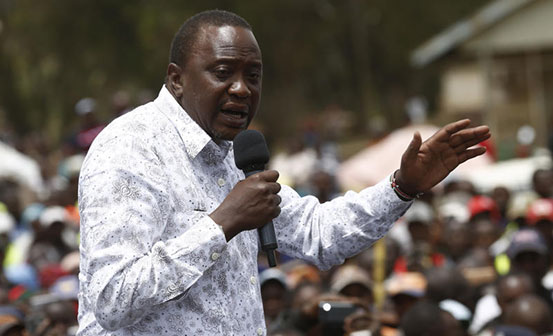×
The Standard e-Paper
Join Thousands Daily

The bitter exchange between President Uhuru Kenyatta and Governor Josephat Nanok during the launch of a drought mitigation plan in Turkana has made headlines across different platforms. The governor raised a number of issues on the allocation of resources to the county, suggesting that they have received less than what the national government claimed.